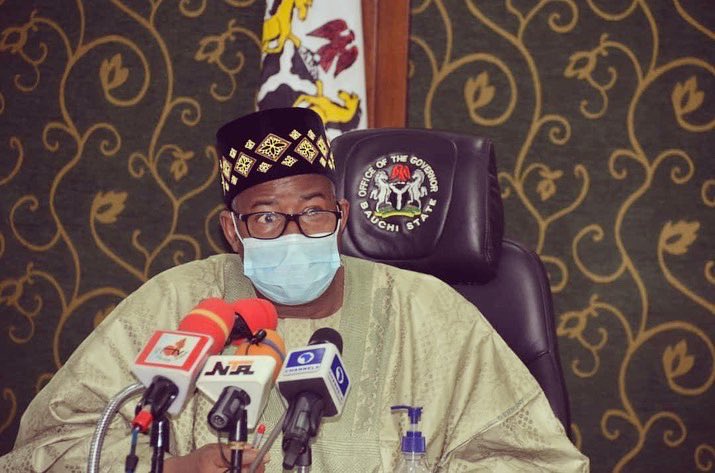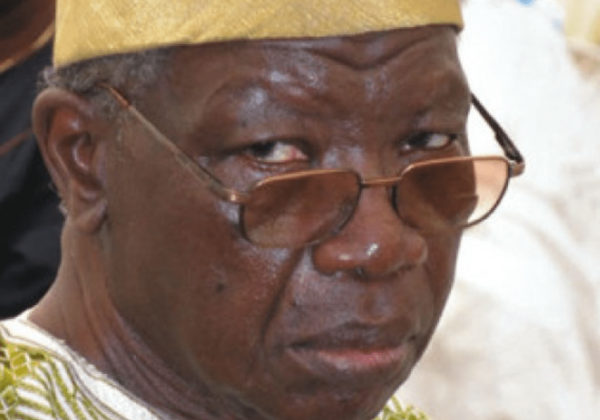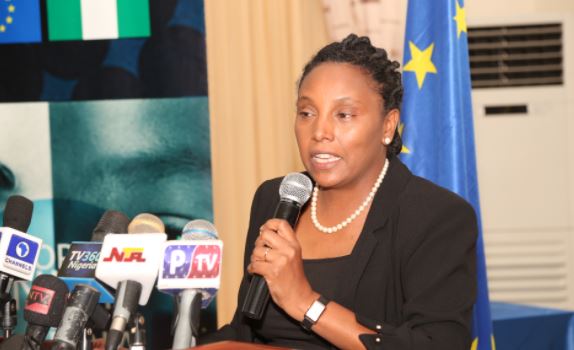When the late Alhaji Lateef Kayode Jakande turned 80 in 1999, Nigerian Tribune had an interview with him at his Ilupeju, Lagos home.
A part of the introduction to the interview published on July 25, 1999, says that Jakande: “…in his Buba and Sokoto, sitting in his garage, on a mere bench, came forcefully across as a man of very simple means. Yet, he said he was very satisfied with life.”
As expected, the first question his interviewers threw at him was: “Your simplicity is very striking. For one, you don’t wear agbada and you don’t ride flashy cars except your Toyota Crown. What could be responsible for that sir?”
Jakande responded as follows: “Contentment with what God has given me. Very early in my life, I learnt of this saying: ‘I am content with what I have, little be it or much; And, Lord, contentment still, I crave Because thou sayest such.’ So, at the end of the day, what is life? Take away service and it will be what Shakespeare called, ‘much ado about nothing’…” Hmmm
Advertisement
Since he passed on last weekend, so much has been written about Jakande, first governor of Lagos State, journalist par excellence and one of Nigeria’s model public administrators. Jakande deserved it all and more.
The good book says blessed is the memory of the righteous. Jakande lived a godly devout Muslim life, very easily defined by the love of God and the love for man. Humanity was the essence of his public service life, something which those who currently fly the flag of politics- progressive or conservative- are largely bereft of.
It would be impossible to say anything new about the achievements of this man of the people, because virtually all of it has been said. His exploits in education, the uncommon compassion, (which brought about his mass housing projects, something those who recently governed Lagos told us was no longer possible), as well as the visionary development of infrastructure, which included the Lekki/Epe Expressway and the moribund metroline project, which has become rocket science for successive administrations in the state.
Advertisement
In the interview referred to above, Jakande told his interviewers about the metroline and the Lagos of his dream. Hear him: “There is a lot of mess on the road for example, the traffic hold-up, the congestion, the uncontrolled traffic, sometimes you have six lanes, and nobody is complaining, maybe because the number of vehicles has overwhelmed the police. But that should not have occurred in the first place. That was why I initiated the metroline which could carry people, about a million or so in a day and what you’re seeing now is going to be worse next year, because the roads of Lagos are limited. That is why I did the metroline. It was planned to start from Agege to Marina, another one on Badagry Road and another on Ikorodu Road. East, West, North. And I want to tell you that there is no alternative; either do it now or in the coming years. The solution is the metroline.”Hmmm, such vision, aborted by the arbitrariness of military rule ironically overseen by a certain Major General Muhammadu Buhari.
Of course, today’s class of politicians, who mostly lack the intellectual foundation for transformative governance, in spite of their strings of degrees have been falling over themselves to pay homage to Jakande. Yet, their conduct thereafter makes you wonder if they hope to learn any lessons from his life.
For instance, Jakande was said to have come from Kwara State. Some accounts claim that his parents moved from Omu-Aran in Kwara state to the Epetedo area of Lagos, where he was born in 1929. What this means is that Jakande was only a first generation Lagosian. That such a man could become the first citizen of Lagos State speaks to the enormous opportunities in Nigeria only if the people would live in peace. This Kwara ancestry and the total devotion with which he governed Lagos should remind us that migration is one of the innate tendencies in men and that the village, ethnic and religious attachment mentality tearing us apart today is unhelpful. Leaders of the country should put the humanity of their people ahead of every other considerations, while citizens must be loyal to their place of residence even if Nigeria continues to hold on to state of origin-based citizenship.
Jakande’s life should also teach Nigerians about the virtue of contentment, which ultimately breeds selfless service. Jakande said that he had three heroes namely: Mahatma Ghandi of India; Abraham Lincoln of the United States and his political leader, Obafemi Awolowo. Although these three had various areas of difference, they were united in a few things, which endeared them to Jakande. The first was that they all had humble beginnings, successfully navigated their lives to gain the confidence of the public, becoming leaders and employing the instrument of governance to improve the lives of the downtrodden.
Advertisement
Now, everyone even those who did not like Jakande testify that he lived a purposeful life dedicated to the service of the people. His Unity Party for Nigeria’s free education programme met peculiar challenges in Lagos. But determined to get as many children of the poor into school as possible, Jakande braved all the odds. He called the bluff of adversaries and naysayers and went ahead to make policy decisions that saw millions of children from all parts of Nigeria attend secondary school free of charge! The UPN believed that education and health were not just the inalienable rights of all citizens but also critical to national development. And as a result, ensured that Nigerians had free access to both in all the states they governed! There are millions of people who attained heights and are alive today just for the sake of these programmes.
Jakande also lived by example. And here is something that today’s leaders, who have their children in schools abroad while public education in the country continues to rot away, need to learn from.
As it concerns education, Jakande walked his talk. He led the campaign for universal education by personal example. Modupe, his daughter, was at that time, said to be a student of Maryland Comprehensive High School. He was also said to have convinced his aides with direct supervision over the education ministry to put their children in public schools without which their stay in his government would be unnecessary. In fact, one of his political allies, Alhaji Ganiyu Kolajo Oseni, was said to have withdrawn his daughter from Corona Schools, Gbagada to a public school in compliancee with the state directives. Even though he, apparently, by choice, only had modest formal education, he was deliberate about elevating other people’s children, establishing the Lagos State University as part of that plan.
These days, governors have become covetous. Unwilling to take their hands off the state treasury even after leaving office, they arm-twist state legislatures into making laws that render their accommodation, feeding and livelihoods perpetual responsibility of states, Jakande lived in his own house and drove his own cars.
Advertisement
Public policy of the Jakande era was people-driven without any semblance of pretences and selfish profligacy, which have become an integral part of our political culture, manifesting in inhuman escalation of poverty in virtually all the states of the federation. It is significant that he was in office for only 50 months, which ended with an arrest that met him on his desk after the coup that ended the Second Republic.
Those who govern Nigeria today should remember that Jakande had only four years to write his name in gold. His four years put the shame on those now grandstanding in the name of governing. They will, hopefully see this and learn some lessons in legacy building.
Advertisement
Adedokun tweets @niranadedokun
Advertisement
Views expressed by contributors are strictly personal and not of TheCable.
Add a comment







